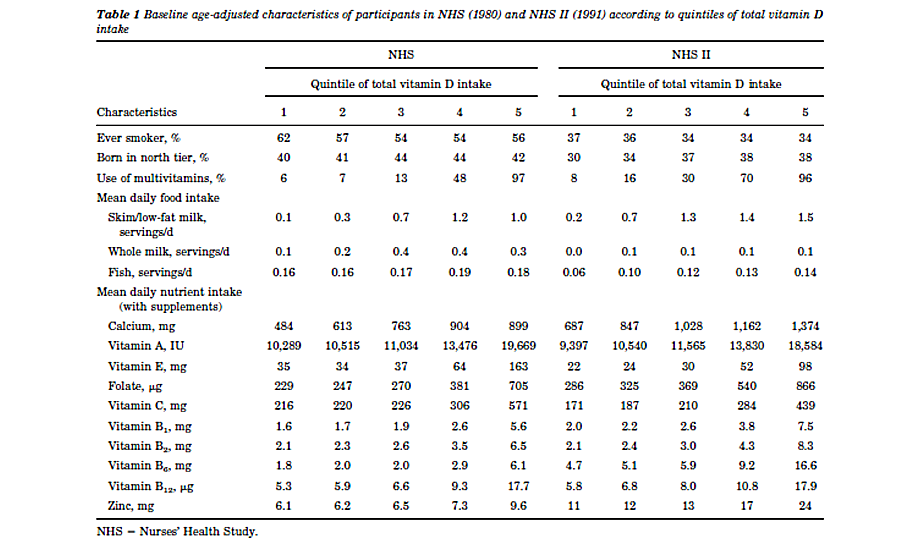Vitamin D intake and incidence of multiple sclerosis
K.L. Munger, MSc; S.M. Zhang, MD, ScD; E. O’Reilly, MSc; M.A. Hernán, MD, DrPH; M.J. Olek, DO; W.C. Willett, MD, DrPH; and A. Ascherio, MD, DrPH
1Department of Pediatrics: Jaffe Food Allergy Institute, Icahn School of Medicine at Mount Sinai, New York, NY 100292Department of Pediatrics: Division of Gastroenterology, Icahn School of Medicine at Mount Sinai, New York, NY 10029
Abstract
Background—A protective effect of vitamin D on risk of multiple sclerosis (MS) has been proposed, but no prospective studies have addressed this hypothesis. Methods: Dietary vitamin D intake was examined directly in relation to risk of MS in two large cohorts of women: the Nurses’ Health Study (NHS; 92,253 women followed from 1980 to 2000) and Nurses’ Health Study II (NHS II; 95,310 women followed from 1991 to 2001). Diet was assessed at baseline and updated every 4 years thereafter. During the follow-up, 173 cases of MS with onset of symptoms after baseline were confirmed. Results: The pooled age-adjusted relative risk (RR) comparing women in the highest quintile of total vitamin D intake at baseline with those in the lowest was 0.67 (95% CI = 0.40 to 1.12; p for trend = 0.03). Intake of vitamin D from supplements was also inversely associated with risk of MS; the RR comparing women with intake of >=400 IU/day with women with no supplemental vitamin D intake was 0.59 (95% CI = 0.38 to 0.91; p for trend = 0.006). No association was found between vitamin D from food and MS incidence. Conclusion: These results support a protective effect of vitamin D intake on risk of developing MS. (…)








